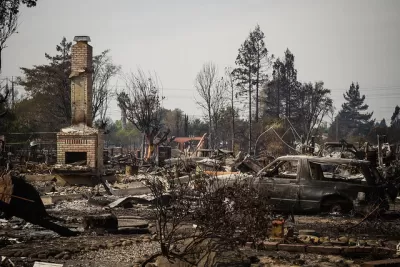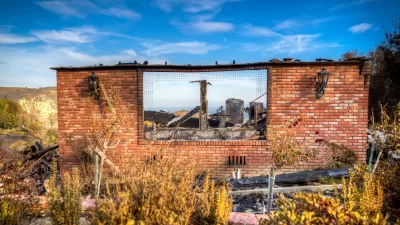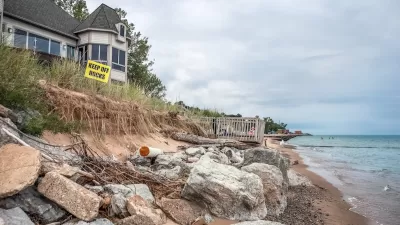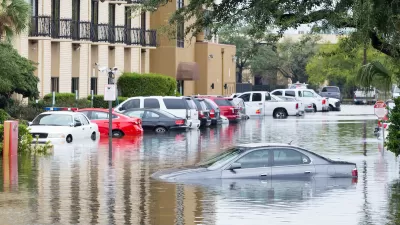Setting insurance rates by looking to the past to predict the future doesn’t make sense with increasing environmental uncertainties, argues the California insurance industry.

Ry Rivard reports that insurance companies in California are arguing that the "new normal" of climate change is altering the insurance landscape. "Near the top of the industry’s wish list is a wonky request: Let insurers set premiums based on the risk of fires that could burn someday soon."
The current approach is to use past losses to predict future ones. But many of the most catastrophic events have happened fairly recently and the frequency and severity of disasters will likely increase in the future. “Since the 1980s, insurers have used increasingly sophisticated computer models to prepare for hurricanes and earthquakes. The California Earthquake Authority, a government-run insurer, uses catastrophe models to set rates, as does a similar effort in Florida to provide hurricane insurance,” writes Rivard.
Critics say that allowing insurers to set rates based on catastrophe models would limit transparency, and they contend that the models do not accurately predict future risks, notes Rivard. "Regulators worry the models aren’t credible, and that they’re a 'black box' and could be used to overcharge consumers."
FULL STORY: Insurance Companies Say They're Not Allowed to Plan for the ‘New Normal’ of Intense Wildfires

Study: Maui’s Plan to Convert Vacation Rentals to Long-Term Housing Could Cause Nearly $1 Billion Economic Loss
The plan would reduce visitor accommodation by 25,% resulting in 1,900 jobs lost.

Placekeeping: Setting a New Precedent for City Planners
How a preservation-based approach to redevelopment and urban design can prevent displacement and honor legacy communities.

Using Old Oil and Gas Wells for Green Energy Storage
Penn State researchers have found that repurposing abandoned oil and gas wells for geothermal-assisted compressed-air energy storage can boost efficiency, reduce environmental risks, and support clean energy and job transitions.

Washington State Plans Ambitious ‘Cycle Highway’ Network
The state is directing funding to close gaps in its existing bike network and make long-distance trips more accessible.

Homeowners Blame PG&E for Delays in ADU Permits
The utility says it has dramatically reduced its backlog, but applicants say they still face months-long delays for approvals for new electrical work.

Rethinking Wildfire Defense: How a Landscape Approach Can Protect Neighborhoods
Post-fire analysis of the Eaton Fire reveals that a landscape approach — including fire-resistant vegetation, home hardening, and strategic planning — can help reduce wildfire risk, challenging assumptions that trees and plants are primary fire hazards.
Urban Design for Planners 1: Software Tools
This six-course series explores essential urban design concepts using open source software and equips planners with the tools they need to participate fully in the urban design process.
Planning for Universal Design
Learn the tools for implementing Universal Design in planning regulations.
Borough of Carlisle
Caltrans
Heyer Gruel & Associates PA
Institute for Housing and Urban Development Studies (IHS)
City of Grandview
Harvard GSD Executive Education
Salt Lake City
NYU Wagner Graduate School of Public Service
City of Cambridge, Maryland





























